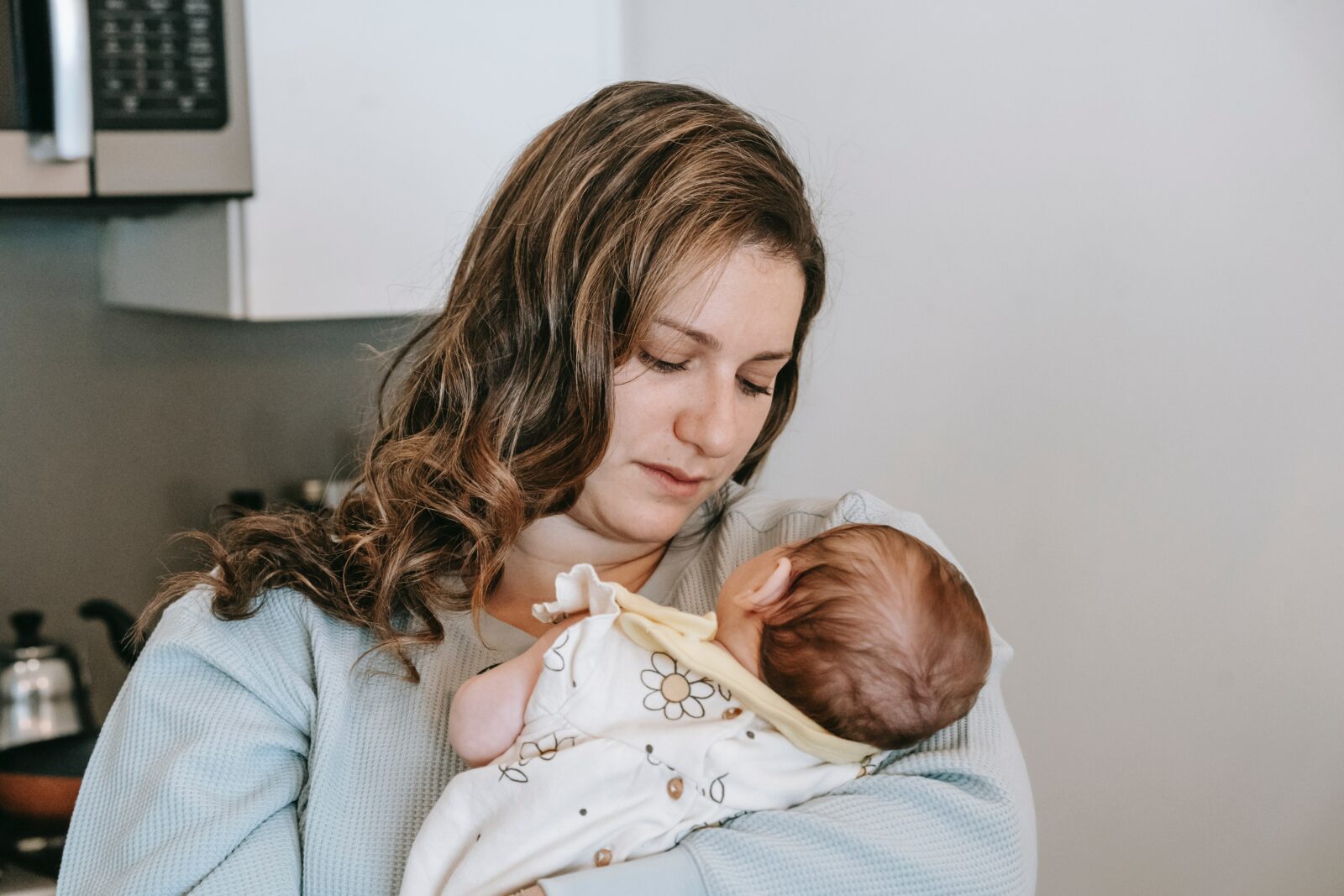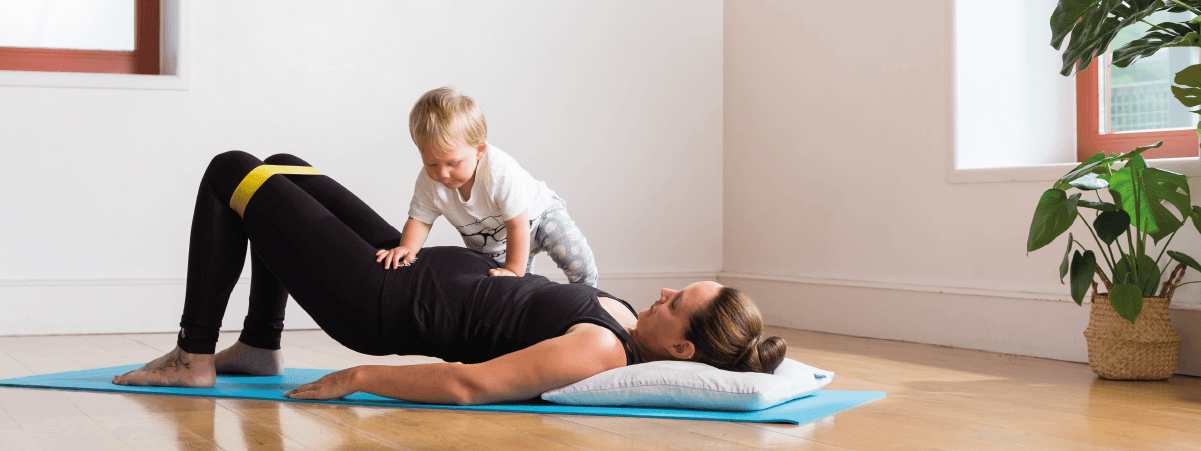Nutrition for healing diastasis recti means: great postpartum nutrition, hydration and rebuilding collagen. Collagen is the stuff that binds together at the front of your abdomen. It’s where all the abdominal muscles meet (or not in the case of a diastasis). If the collagen doesn’t heal or regenerate, then the gap can’t close.
Collagen nutrition for healing diastasis recti – animal or vegetarian?

Guest post from Jessica Drummond, MPT, CCN, CHC. Jessica Drummond was a guest Instructor at the MUTUVation Houston workshop way back in October 2014. Her session impressed everyone with new knowledge and insights on hormone health and healing through nutrition.
“We always get questions on whether or not humans need to eat animal gelatin or collagen directly. How does nutrition for healing diastasis recti rebuild our collagen postpartum? It seems odd that if oxen and cattle and other large animals can rebuild their own collagen by eating plants, why can’t humans?
The answer is that humans can, it’s just not as efficient. If you’re a new mom, who is vegetarian or vegan, eating a healthy plant-based diet that’s high in protein from nuts, seeds, beans, and sprouted grains, I don’t recommend that you change anything.
Cattle and oxen are herbivores. Humans are omnivores. So we can rebuild collagen (for our overstretched abdominals, and strained or torn pelvic floors) more efficiently from animal proteins. Especially those from the skin, cartilage, and bones of other animals (aka gelatin.) We have the capacity to rebuild from either plant or animal sources, it’s just a matter of efficiency.
So, if you’re a healthy vegetarian or vegan, and you’re working to recover your abdomen and pelvic floor postpartum, then nutrition for healing diastasis recti should include lots of plant protein. Take great care of your digestion so that you can best absorb the protein that you’re eating, and get plenty of vitamin C.
On the other hand, if you’re struggling to recover your abdomen or pelvic floor, you would like to eat to optimize your healing, and you don’t mind eating animal products, eating gelatin is a great way to recover faster!
Recommendations for postpartum healing through nutrition
Specific foods and supplements that can support the healing of your abdomen and pelvic floor after delivery.
- Drink bone broth or use it in soups or for cooking grains. Bone broth is the absolute best food source for rebuilding collagen. Bone broth contains the gelatin, glucosamine sulfate, chondroitin, and hyaluronic acid that are necessary to build collagen. Here’s a great recipe for bone broth that you can make in a slow cooker.
- Supplement with gelatin. The three best brands that provide the highest-quality collagen and gelatin powders from pasture-raised cows are Bulletproof, VitalProteins, and Great Lakes. You can add these supplements to your protein smoothies, or those that don’t easily dissolve in cold liquids can be used to make Paleo gelatin desserts.
- Not keen on bone broth? Finally, if you don’t have time to make bone broth, or you just can’t stomach it, Designs for Health has just released a new product, called PurePaleo. It’s a protein powder made from a high-quality source of hydrolyzed beef.
I hope that clears up the gelatin and collagen confusion! Start a delicious pot of bone broth brewing on your stove (or in your slow cooker), and enjoy the nourishment.”
About Jessica
Jessica Drummond, MPT, CCN, CHC, is Founder and CEO of The Integrative Pelvic Health Institute. She is passionate about caring for and empowering women who struggle with endometriosis, PCOS, bladder pain, low libido, hormonal imbalances, weight gain, period pain, painful sex, and post-surgical, orthopedic, or pregnancy related pelvic conditions. She educates and supports clinicians in confidently and safely using integrative tools to treat chronic pelvic pain, bowel and bladder, and other women’s health issues. Decades of experience as a women’s and pelvic physical therapist plus owning a private women’s health clinical nutrition and coaching practice gives her a unique perspective on the integrative, conservative options for pelvic pain management. Jessica was educated at the University of Virginia, Emory University, The Institute of Integrative Nutrition, and Duke Integrative Medicine.
Jessica is among the many medical experts in Women’s Pelvic Health from around the world who endorse and approve the MUTU System program.












Are collagen and gelatin supplements safe to take while pregnant and/or breastfeeding?
Are collagen and gelatin supplements safe to take while pregnant and/or breastfeeding?
what about hair skin and nail vitians or jello?
what about hair skin and nail vitians or jello?
Which is better? A collagen or gelatin supplement?
Which is better? A collagen or gelatin supplement?
Start with a few months for healing, and then continue as you would like to maintain resilience for strength or to prep for another baby.
I would also like to know about the dosage of gelatin for DR healing. Thanks
There are no specific dosages studied in this population. I recommend using the dosage recommended by each supplement company on the packaging. (See #2 above for high quality brands.)
I would also like to know about the dosage of gelatin for DR healing. Thanks
There are no specific dosages studied in this population. I recommend using the dosage recommended by each supplement company on the packaging. (See #2 above for high quality brands.)
What about Fish Collagen? I found Neocell fish collagen in Amazon and would like to try it, will it help with my DR? I tried many times making bone broth but will cook it for only one or two hours maximum, and after all I can’t accept its taste.
I have never tried fish collagen, or seen any studies on it. But, if it’s made from the fish bones it’s likely to be fine. Just be sure that it’s not contaminated with heavy metals.
What about Fish Collagen? I found Neocell fish collagen in Amazon and would like to try it, will it help with my DR? I tried many times making bone broth but will cook it for only one or two hours maximum, and after all I can’t accept its taste.
I have never tried fish collagen, or seen any studies on it. But, if it’s made from the fish bones it’s likely to be fine. Just be sure that it’s not contaminated with heavy metals.
This broth is nothing more than making a simple beef broth from bones correct?
Also how much needs to be consumed? Is this just until the DR heals or for the rest of life? Excited to try this out!
Yes… just old fashioned broth!
This broth is nothing more than making a simple beef broth from bones correct?
Also how much needs to be consumed? Is this just until the DR heals or for the rest of life? Excited to try this out!
Start with a few months for healing, and then continue as you would like to maintain resilience for strength or to prep for another baby.
Yes… just old fashioned broth!
Sandra, I’m thrilled to hear about your progress. I am also a vegetarian who eats a great diet full of plant based proteins, but I haven’t made the progress that I would like. I am 1 1/2 years postpartum. I would also like to know the specifics about what kind of gelatin you are taking. Thanks so much!
Brilliant article a customer just told us about you guys keep up the good work
Brilliant article a customer just told us about you guys keep up the good work
Hi Dionna- I am not a medical expert, but am a coach and personal trainer full time, so I have quite a bit of experience within this realm (also why I believe in MuTu so much). In my experience the gelatin can help even three years post partum. I have two children 7 and 3 and both were 10+ pounds on my tiny frame. Those pregnancies did a lot of damage that I have spent years trying to repair. I have been a pescatarian for the last 25 years and though I eat a strong diet, I really never got the results that I would expect from my core. I had to take a workout hiatus for about two months to help a family member but I started taking the gelatin daily and within two weeks started to notice a difference- in my hair, skin, sleep, nails And the depth of my broken transverse. So without any workouts- and just using the gelatin I noticed a difference. Now that I am back to working out and also using the gelatin I most definitely notice a difference. And it really hasn’t even been that long. I have avoided the use of gelatin for all the same reasons that I am a vegetarian in the first place, but as Wendy notes in her post here, there really isn’t denying that if your body needs it you will feel a difference. That’s certainly the case for me.
Just as a note- the smell is very off putting for me. The only way I can get it in is by mixing it with Nuun electrolyte tabs. That masks the smell and taste completely for me.
Good luck!!
Sandra, That’s an inspiring story. I’m 4 years postpartum and am also a vegetarian. Can you share more detail on what kind of gelatin you’re taking (what brand?) and what are the electrolyte tabs? How do you take it?
thanks!
MSM is a clean vegan source of collagen. Just make sure to purchase a good brand and take with vitamin C (such as Camu Camu powder) to aid in its absorption.
MSM is a clean vegan source of collagen. Just make sure to purchase a good brand and take with vitamin C (such as Camu Camu powder) to aid in its absorption.
Does taking a collagen supplement help?
Yes… the recommendations in #2 are all collagen supplements.
Does taking a collagen supplement help?
Yes… the recommendations in #2 are all collagen supplements.
Would this be helpful for someone with a separation 3 years postpartum? I have struggled so long and I’m considering surgery now. I also have a hernia at my belly button area. I don’t know if there is any natural ways I can correct this at this point but I am willing to try something if someone has had success this far out. Thank so much!
Hi Dionna- I am not a medical expert, but am a coach and personal trainer full time, so I have quite a bit of experience within this realm (also why I believe in MuTu so much). In my experience the gelatin can help even three years post partum. I have two children 7 and 3 and both were 10+ pounds on my tiny frame. Those pregnancies did a lot of damage that I have spent years trying to repair. I have been a pescatarian for the last 25 years and though I eat a strong diet, I really never got the results that I would expect from my core. I had to take a workout hiatus for about two months to help a family member but I started taking the gelatin daily and within two weeks started to notice a difference- in my hair, skin, sleep, nails And the depth of my broken transverse. So without any workouts- and just using the gelatin I noticed a difference. Now that I am back to working out and also using the gelatin I most definitely notice a difference. And it really hasn’t even been that long. I have avoided the use of gelatin for all the same reasons that I am a vegetarian in the first place, but as Wendy notes in her post here, there really isn’t denying that if your body needs it you will feel a difference. That’s certainly the case for me.
Just as a note- the smell is very off putting for me. The only way I can get it in is by mixing it with Nuun electrolyte tabs. That masks the smell and taste completely for me.
Good luck!!
Hi Dionna, Yes… with appropriate exercise and good nutrition, you can make a big difference even several years postpartum.
Would this be helpful for someone with a separation 3 years postpartum? I have struggled so long and I’m considering surgery now. I also have a hernia at my belly button area. I don’t know if there is any natural ways I can correct this at this point but I am willing to try something if someone has had success this far out. Thank so much!
Hi Dionna- I am not a medical expert, but am a coach and personal trainer full time, so I have quite a bit of experience within this realm (also why I believe in MuTu so much). In my experience the gelatin can help even three years post partum. I have two children 7 and 3 and both were 10+ pounds on my tiny frame. Those pregnancies did a lot of damage that I have spent years trying to repair. I have been a pescatarian for the last 25 years and though I eat a strong diet, I really never got the results that I would expect from my core. I had to take a workout hiatus for about two months to help a family member but I started taking the gelatin daily and within two weeks started to notice a difference- in my hair, skin, sleep, nails And the depth of my broken transverse. So without any workouts- and just using the gelatin I noticed a difference. Now that I am back to working out and also using the gelatin I most definitely notice a difference. And it really hasn’t even been that long. I have avoided the use of gelatin for all the same reasons that I am a vegetarian in the first place, but as Wendy notes in her post here, there really isn’t denying that if your body needs it you will feel a difference. That’s certainly the case for me.
Just as a note- the smell is very off putting for me. The only way I can get it in is by mixing it with Nuun electrolyte tabs. That masks the smell and taste completely for me.
Good luck!!
Sandra, That’s an inspiring story. I’m 4 years postpartum and am also a vegetarian. Can you share more detail on what kind of gelatin you’re taking (what brand?) and what are the electrolyte tabs? How do you take it?
thanks!
Sandra, I’m thrilled to hear about your progress. I am also a vegetarian who eats a great diet full of plant based proteins, but I haven’t made the progress that I would like. I am 1 1/2 years postpartum. I would also like to know the specifics about what kind of gelatin you are taking. Thanks so much!
Hi Dionna, Yes… with appropriate exercise and good nutrition, you can make a big difference even several years postpartum.
Short and sweet!
About to buy some collagen/gelatin supplement but not sure where to buy from and how each product is different from the other?- is the new ‘PurePaleo’ product from Designs for health enough or do I also get any one of the collagen supplements from Great Lakes/VitalProteins/BulletProof? Thanks.
Short and sweet!
About to buy some collagen/gelatin supplement but not sure where to buy from and how each product is different from the other?- is the new ‘PurePaleo’ product from Designs for health enough or do I also get any one of the collagen supplements from Great Lakes/VitalProteins/BulletProof? Thanks.